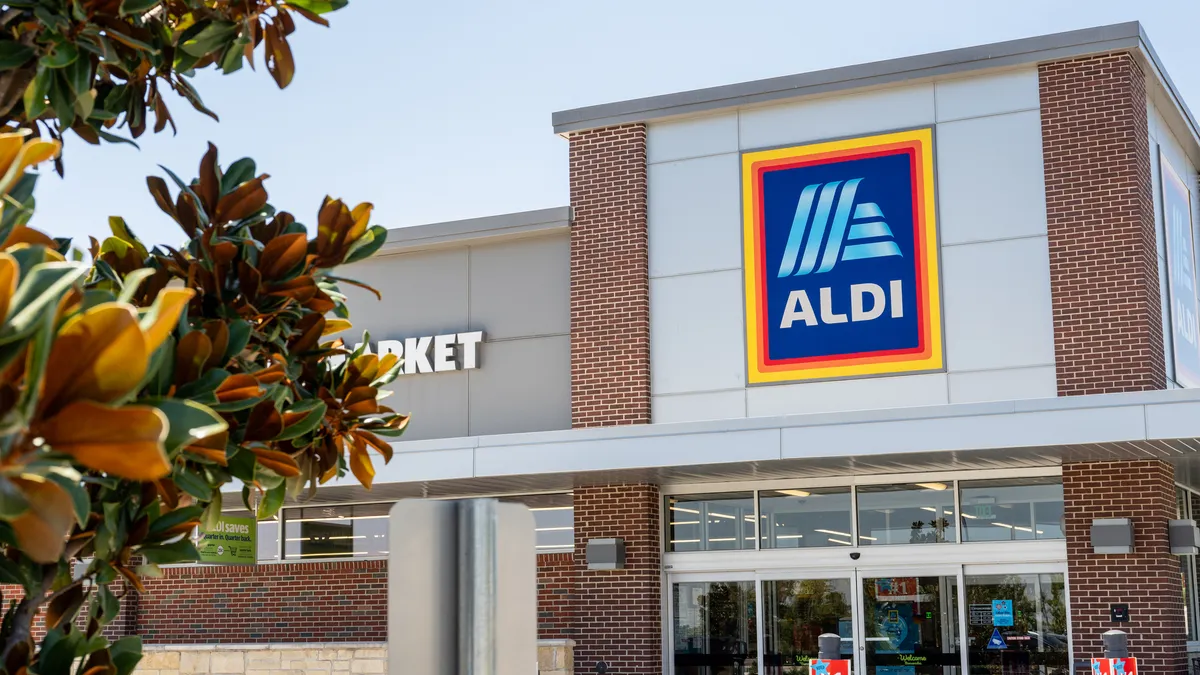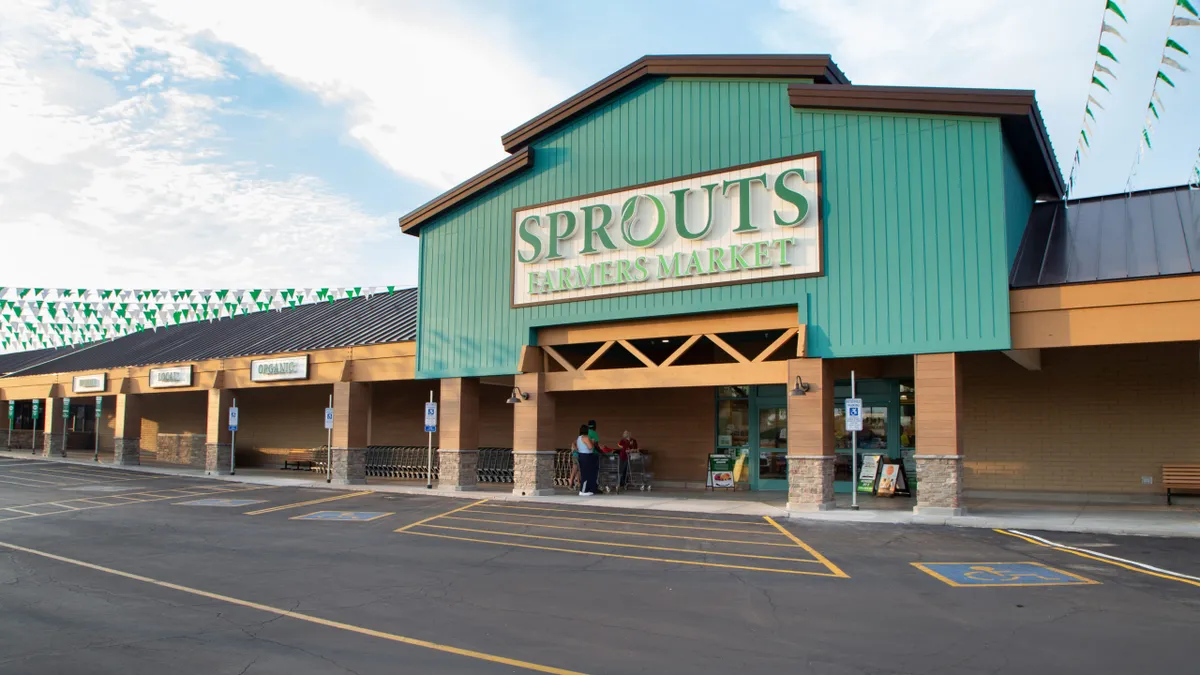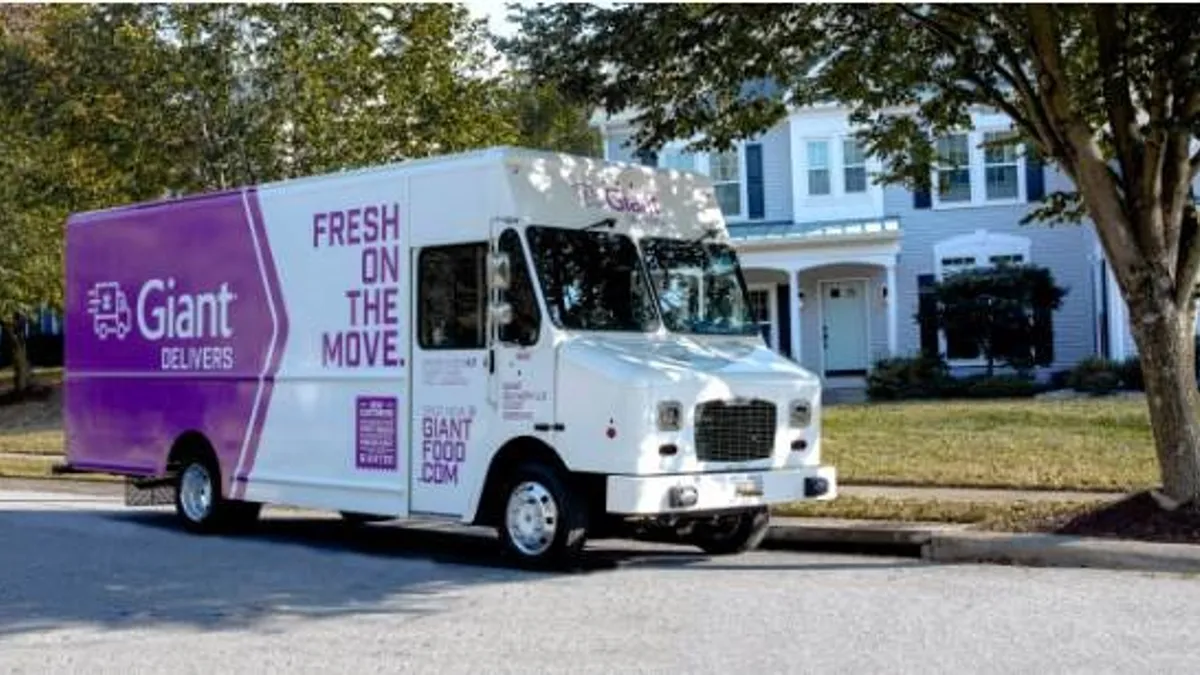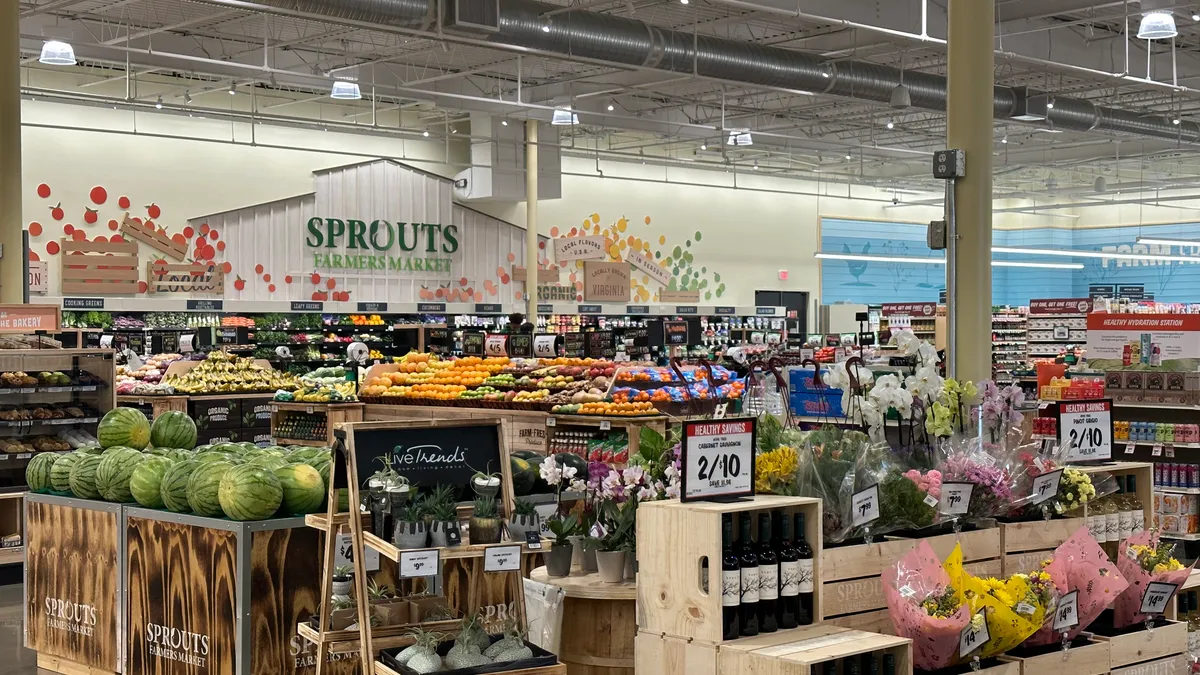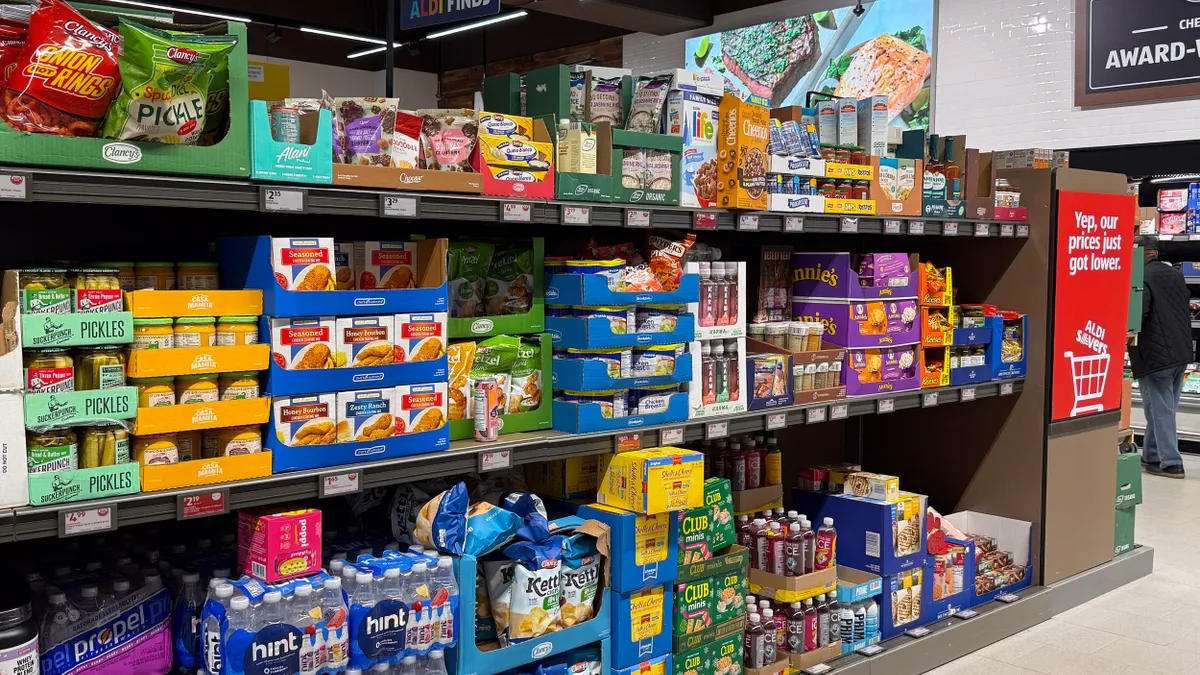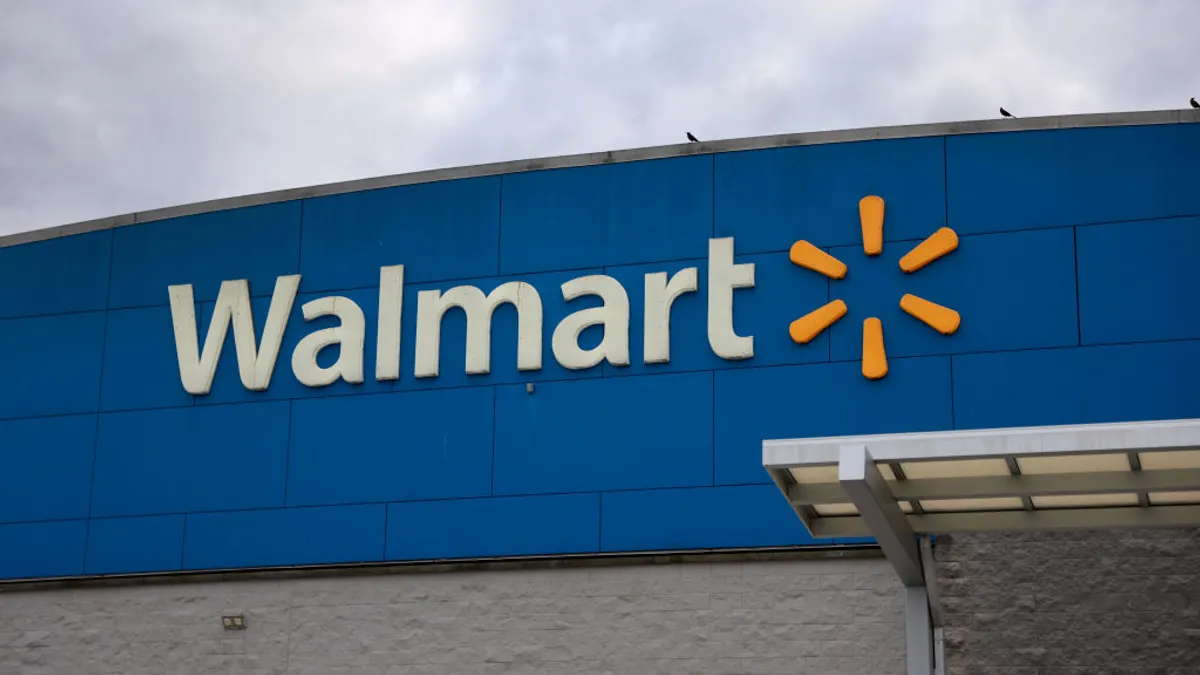Following unprecedented challenges facing grocery workers during the pandemic, retailers are now struggling to attract and retain the help they need to run their stores, warehouses and supply operations.
In earnings reports, interviews and press announcements, companies have admitted they're facing unprecedented labor challenges that may not resolve soon. Nearly half of roughly 2,500 frontline workers in the U.S., U.K. and Australia surveyed by training company Axonify and Arlington Research this summer said they planned to leave their jobs. Fifty-six percent of grocery workers cited burnout as their top reason for resigning, followed by compensation at 49.6%.
As the pandemic continues, hazard pay, child care, safety concerns and sick leave are proving to be major hurdles to hiring and retention for grocers.
With so many workers casting a skeptical eye on grocery industry jobs, retailers are realizing that they need a new playbook for connecting with current and prospective workers. According to Axonify's survey, better compensation (49.2%), more flexible schedules (44.2%) and more appreciation for their work (42.6%) are the top reasons frontline workers gave for staying in their current jobs.
Frontline workers say compensation, flexible schedules are top retention tactics
That's spurred companies to implement a raft of new enticements, including increasing wages, offering sign-on bonuses, and providing compensation and time off to workers who get COVID-19 vaccinations.
Companies are also increasingly looking beyond monetary incentives. Several retailers have leaned into nontraditional approaches to address employee concerns and stand out to job seekers. In no particular order, here are eight unique efforts that were undertaken by grocers and food companies this year to hire and retain workers.
1. Fun at the job fair
Job fairs don't exactly inspire excitement among prospective workers. So why not add some fun and games to the mix?
In October, SpartanNash hosted a national hiring fair across its retail store and distribution center footprint featuring activities like “Minute to Win It”-style games where attendees loaded pallets and filled shopping bags with products. The company noted the games were intended to get people excited about working at SpartanNash, while also simulating various job roles.
In addition to the games, the company said it would also use the fair as an opportunity to share information about benefits and give behind-the-scenes tours to prospective job candidates.
The fair happened at a time when SpartanNash was looking to fill 4,000 positions ranging from warehouse order selectors to meat cutters, competing with other retailers like Walmart, Target and Amazon, which each said they aimed to bring on 100,000 workers or more, as part of their pre-holiday season hiring sprees.
2. Letting pets come to work — wherever the road may go
When Dollar General set out to recruit drivers for its in-house distribution network amid a trucker shortage this summer, the fast-growing discount retailer, which brought on tens of thousands of new workers across the board in 2021, took a decidedly different turn.
Along with monetary benefits like a $5,000 signing bonus and a paid program to help drivers get their commercial driver's license, the company said it would let truckers bring their pet along when they travel. Under Dollar General's new program, announced in August, drivers are permitted to have one vaccinated dog or cat from an eligible breed join them in the cab. Pets are even allowed to enter distribution centers or stores as long as they're on a leash.
Dollar General has been looking to add drivers to serve its expanding number of locations during a year when the driver pool in the United States has been under historic stress. The trucking industry currently faces a shortage of 80,000 drivers and has been taking steps to address lifestyle issues that have made the profession a tough sell for many people, the American Trucking Associations said in October.
3. Refining wine wisdom
To help shoppers navigate the wine aisle, Albertsons rolled out online learning courses for its beverage stewards with two levels of training: Wine 101 and Wine 201. The grocer teamed up with the Napa Valley Wine Academy to develop the proprietary certification.
The asynchronous courses use video, text, graphics and "an interactive experience," and can be accessed at any time. The first level takes about 12 to 14 hours to finish, while the second ones takes 18 to 20 hours.
Other grocers, like Gelson's Markets in California, have also turned to educational opportunities for workers to help make their stores more appetizing as alcohol destinations, but Albertsons' course stands out for its partnership with an acclaimed wine school.
4. New phone alert
This summer, Walmart said it would offer free new Galaxy smartphones, along with a case and protection plan, to more than 740,000 of its almost 1.6 million U.S. workers. The new phones were part of the retailer's launch of its new workplace app called Me@Walmart that allows associates to schedule shifts, clock in and troubleshoot tasks.
While workers can only use the new app while working, Walmart said they could use the phones for personal activities. Previously, workers shared handheld devices. In 2018, the retailer introduced a “bring your own device” policy that let workers use different workplace apps on their personal devices.
Me@Walmart, which Walmart built in-house to consolidate job functions, uses machine learning, augmented reality, camera vision and artificial intelligence. Eventually, workers will be able to use an augmented-reality feature on the app to scan multiple boxes in store backrooms to make stocking faster.
Walmart is currently working on a tool for corporate workers that is “very similar” to the app, Suresh Kumar, Walmart's global chief technology officer and chief development officer, said during a virtual forum in October.
5. Solving problems for parents
With COVID-19 restrictions in flux over the course of the year, child care has become a top concern among grocers facing a tighter labor pool. To make it easier for parents and caregivers to find child care options, Hy-Vee teamed up with WeeCare to provide eligible workers access to in-home providers in both rural and urban areas.
The Midwestern grocer announced the new benefit in September amid the child care industry's own struggle with staffing, which resulted in posing limitations on parents' ability to return to work. Only 7% of companies provide child care assistance to workers, WeeCare CEO Jessica Chang said in the announcement.
In addition to Hy-Vee, a number of grocers, including Kroger, New Seasons Market and United Natural Foods, Inc. (UNFI), have highlighted their benefits for child care assistance in announcements about their hiring events or changes to benefits.
6. Financial help to overcome setbacks
Natural Grocers recently created a nonprofit charity organization called the Natural Grocers Heroes in Aprons Fund to help workers make ends meet.
The organization consolidates the natural and organic chain's charitable efforts into one group. One of its offerings is short-term financial assistance to Natural Grocers workers or their immediate family members who experience unanticipated hardships caused by sickness, natural disasters or other circumstances.
The Heroes in Aprons Fund mainly relies on corporate donations from Natural Grocers and individual donations from its workers, and funds are collected during the year from sales-based giveback programs and company initiatives responding to current events and community needs.
7. Learning new skills on the job, five minutes at a time
Recognizing that it can be hard for employees to find time for training during the workday, Kroger rolled out a new learning system this year with game-based modules that require less than five minutes per shift to complete.
The program, developed by Axonify, uses a mobile app to deliver individualized training sessions on topics like fresh produce management and the grocer's diversity, equity and inclusion initiatives, according to Chain Store Age, which first covered the announcement.
Like other retailers, Kroger has faced significant challenges as it has sought to expand its payroll amid the labor shortage and economic tumult caused by the pandemic. As it looks to position itself as a desirable employer that offers chances for advancement, the company has been pointing out to applicants that it offers personalized development opportunities and highlighting the fact that many senior Kroger officials worked their way up from jobs in stores.
8. Adding flexible roles
Taking a cue from the gig economy, several grocers have added roles with flexible hours. Hy-Vee rolled out its own flex worker position primarily to support its online shopping service late last year. UNFI executives have highlighted to investors this year the company's efforts to implement flexible work programs, with its new Flex Shift program offering workers the chance to set their own schedules and work part-time hours.
Flex Shift, "significant investments" in wages and offering a program that allows distribution workers to get paid earlier than with traditional weekly paychecks have helped UNFI attract and retain more workers, President Chris Testa said during the earnings call earlier this month.
"These efforts are paying off and have led to a 30% reduction in open headcount in our warehouse operations compared to year-end," he said.
Chief Operating Officer Eric Dorne said on the earnings call that Flex Shift "is really starting to take hold" and "growing every week," with associates in that program accounting for almost 4% of total hours clocked in by the company's workforce. "We're striving after work-life balance, reducing overtime, increasing flexibility," Dorne said.








